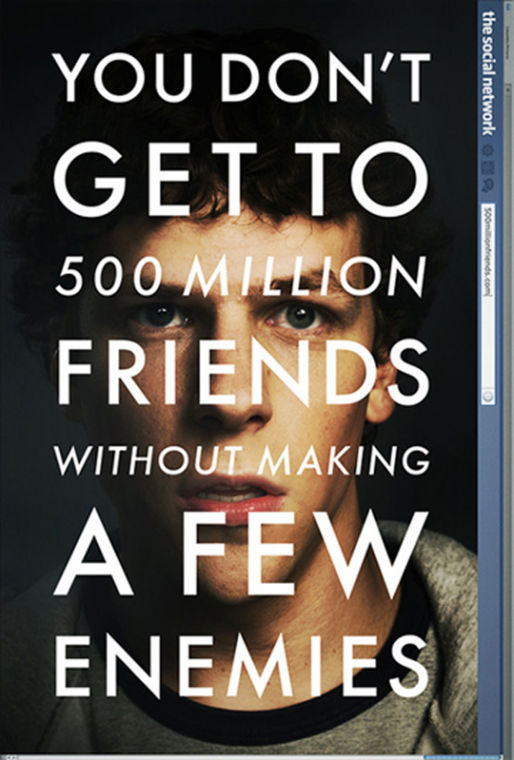“The Social Network” creates big splash with “true story”
October 6, 2010
I will admit that when I first saw ads for “The Social Network” it was far from appealing, I could not see any reason I could be persuaded to go see what looked like some whiny melodrama about how depressing it really was being the worlds youngest billionaire.
It turns out there were two very good reasons. As baffled as I was that Aaron Sorkin (“A Few Good Men,” “The West Wing”), one of the sharpest and most even-handed TV and film writers had written the screenplay adaptation of Ben Mezrich’s novel about the origins of Facebook, I was even more confused that David Fincher (“Se7en,” “Fight Club,” and “The Curious Case of Benjamin Button”) was directing it.
“The Social Network” takes what could easily have been a one-sided tirade/tribute to one of the three main parties around which the movie revolves and transforms it into a fictionalized retelling from multiple perspectives. It is the reason this film is getting so much critical approval, and what makes it worth watching.
Similar movies like “Flash of Genius” and “The Pursuit of Happyness” told excessively glorifying stories that conformed to the old hero and villain archetypes which glazed over a lot of important details if they cast the protagonist in a negative light.
The fact that Sorkin and Fincher chose not to do this, despite a wealth of people who easily could have been made to look like deliberate antagonists which includes identical twin brothers I could swear I have seen as the bad guys in three or four different movies about college freshman hijinks.
Jesse Eisenberg plays Mark Zuckerberg, who has just broken up with his girlfriend and feels the need to vent; drunk and bitter, he badmouths her on Livejournal as he creates a site called Facemash that puts pictures taken from various Harvard social clubs’ websites two at a time and asks the user to pick which one looks hotter.
The site spreads like wildfire across campus and crashes the college’s server, Zuckerberg is reprimanded for privacy violations and the offensive nature of the site, but it gained him the attention of Cameron and Tyler Winklevoss, who are looking for someone to make a new dating site exclusively for Harvard students, which, depending on how you see it, may have given Zuckerberg the idea for Facebook.
Instead of building their site, Mark and his friend Eduardo Saverin (Andrew Garfield) begin to build a social networking site exclusively for Harvard called thefacebook.
“The Social Network” is a fantastic example of the way that ‘based on true events’ movies can work without demonizing half of the people involved and I hope that the approach and style it used will become a major influence in the genre.
However, for anyone who does not have the time or interest to read the details behind every movie based on real life that you see, we all need to keep in mind that, no matter how fair or unfair a film may be, it should never be taken as what actually happened. Sorkin all but addresses the audience directly in the final scene when a character says that in her experience 85 percent of testimony is exaggerated emotion and the other 15 percent is perjury.



